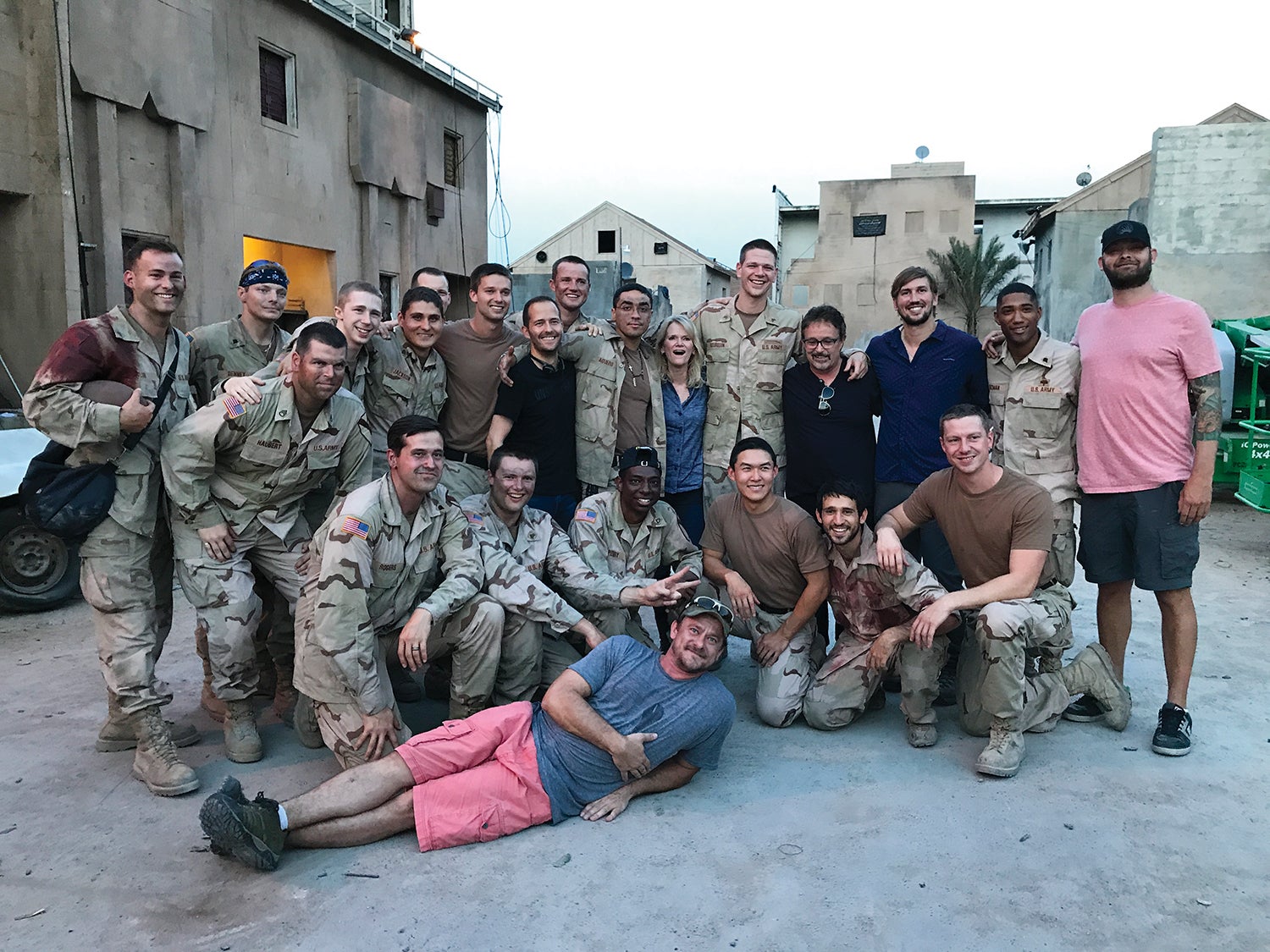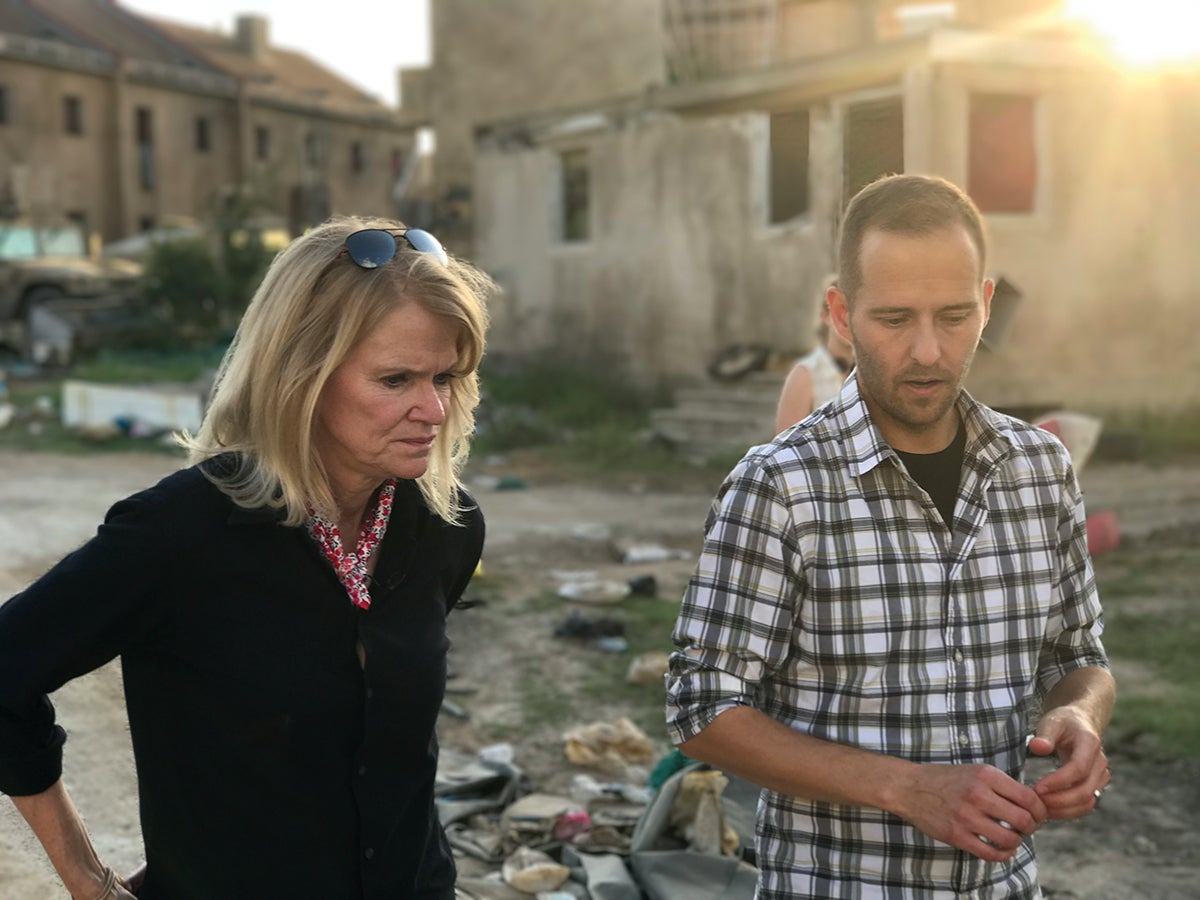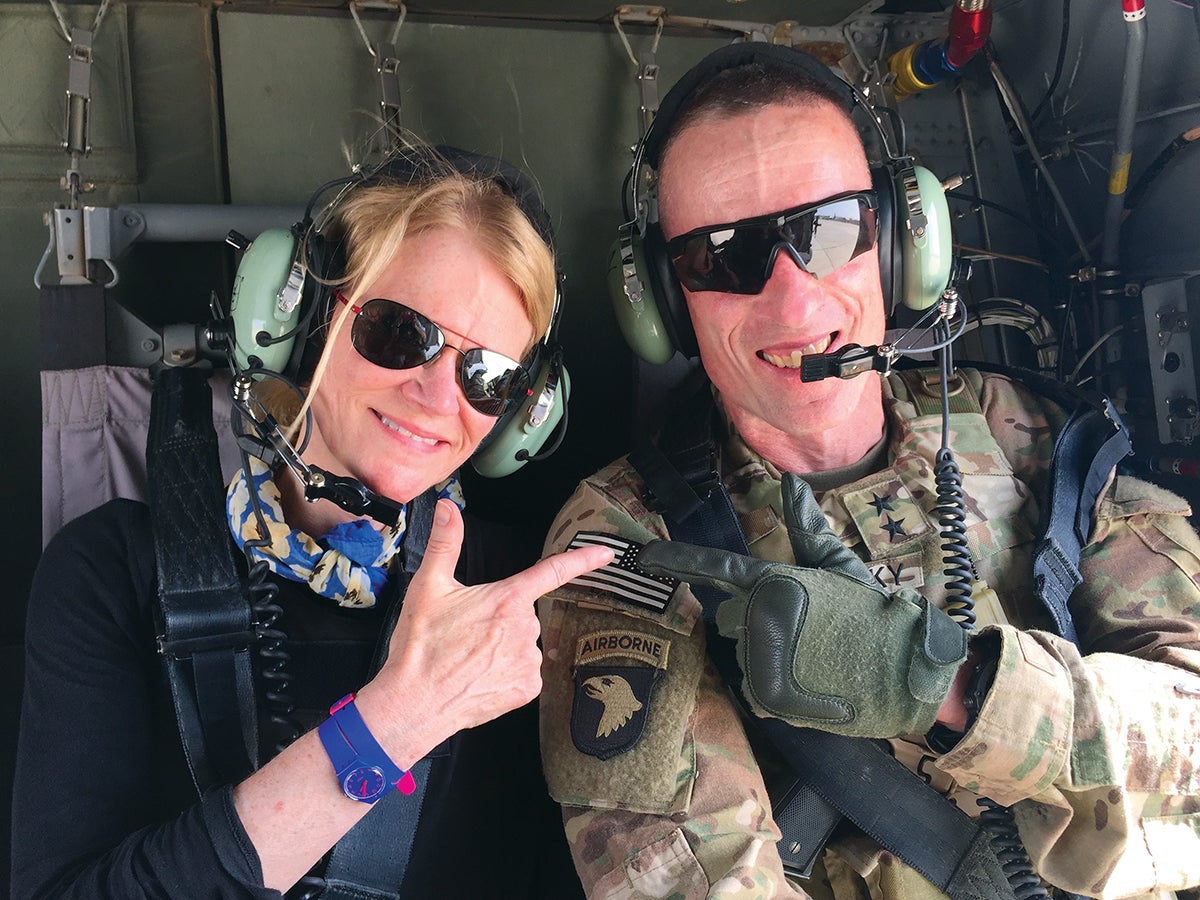Martha Raddatz, ABC News chief global affairs correspondent and This Week co-anchor, was selected by the Council of Trustees of the Association of the U.S. Army as the 2018 recipient of the George Catlett Marshall Medal for sustained commitment to the men and women of America’s armed forces.
This award, AUSA’s highest honor for distinguished public service, will be presented at the George Catlett Marshall Memorial Dinner, the final event of the 2018 Association of the U.S. Army Annual Meeting and Exposition in Washington, D.C.
Raddatz is a seasoned national security and foreign policy expert who has covered the U.S. military since the 1990s. She also wrote a best-selling book that became a National Geographic miniseries based on a 2004 ambush of a platoon of 1st Cavalry Division soldiers in the Sadr City area of Baghdad. Her book, The Long Road Home: A Story of War and Family, was her retelling of the ambush, of the dead and injured and of their families back at Fort Hood, Texas.
In this essay, she reflects on the beginning of her time covering the military, when she met Army Chief of Staff Gen. Gordon R. Sullivan—who after retiring became president and CEO of AUSA, and was awarded his own Marshall Medal in 2016.
* * *
Respect. Remember. I kept those words in my head when I first started walking the halls of the Pentagon in 1993. That was how I approached this new, exhilarating and rather incomprehensible beat in the beginning. I had no background with the U.S. military and did not come from a military family. Outside of a fascination with military history, I had no idea what I was doing. But I respected the military deeply, and I remembered every day what they had done for all Americans. That was how my reporting journey began.
Then I met soldiers. And then I met the best, baddest soldier of them all, then-Chief of Staff of the Army Gen. Gordon R. Sullivan. He was everything I imagined a soldier to be. And nothing I imagined a soldier to be. He was tough, brave, direct and exuded leadership. It wasn’t until later I would see the other side of him.
A short time after my first Pentagon meeting with Sullivan, I asked if I could travel with him to see what it was the U.S. Army did. He growled that familiar Boston (OK, Quincy) “harrumph” and agreed to let me tag along on one of his trips. We would land in Fort Benning, Ga., a few weeks later to watch a Ranger competition. Sweat, teamwork and perseverance were on full display. Mud-soaked Rangers began lining up. All eyes then turned to Sullivan as he strode up to give the Army “Hooah.” And then he spoke. That was when every stereotype that I had in my head about soldiers was shattered. It was more than leadership, more than strength, more than toughness; it was compassion and heart.
Sullivan’s words to those soldiers and others in the coming months were as powerful a message of love and support as you would hear from a parent to a child. The well of emotion and caring in that old soldier was deep and loud. The scars he carried, the battles he still held close, the friends he had lost were all inside him. He didn’t talk about that often, but I could sense it. And he knew I could. From that day forward, he helped me understand all that I didn’t know about his beloved Army.
Sullivan would soon retire (but he remains my friend to this day) and Americans would soon return to war. Iraq and Afghanistan became like second homes to me. The Army my second family. Oh, don’t get me wrong, if the Army messes up I will be the first to report it. And the soldiers I respect understand that is part of my job. But while I reported the facts of war, I also was afforded a window into the Army that few others were. With the help of now-retired Gens. George Casey, Peter Chiarelli, Marty Dempsey, Carter F. Ham [now president and CEO of AUSA] and so many others, I would learn more about war, the Army and the American soldier than I could have ever imagined. They trusted me to tell the truth, and they entrusted their soldiers to tell me their stories. I have made it my mission, my “public service,” to make sure Americans understand the meaning of sacrifice and service.
This beat has always been more than a job to me. After sharing unbearable loss with soldiers and families, watching them conquer unimaginable pain—witnessing their extraordinary courage, and then asking them to re-live those moments so others will know—I simply cannot walk away. I do what I can to help, whether that is telling their stories or holding them close. I treasure these years covering our Army. I treasure the lifelong friendships, the memories we share and the pride we take in our respective jobs.
But the pride I have in being awarded the Marshall Medal, the same one my friend Gordon Sullivan and so many of my heroes have been awarded, is the greatest honor I can imagine. Given the incredible list of past honorees, I will never be convinced it is an award I deserve. But I promise I will continue to strive to earn it. Respect. Remember.





